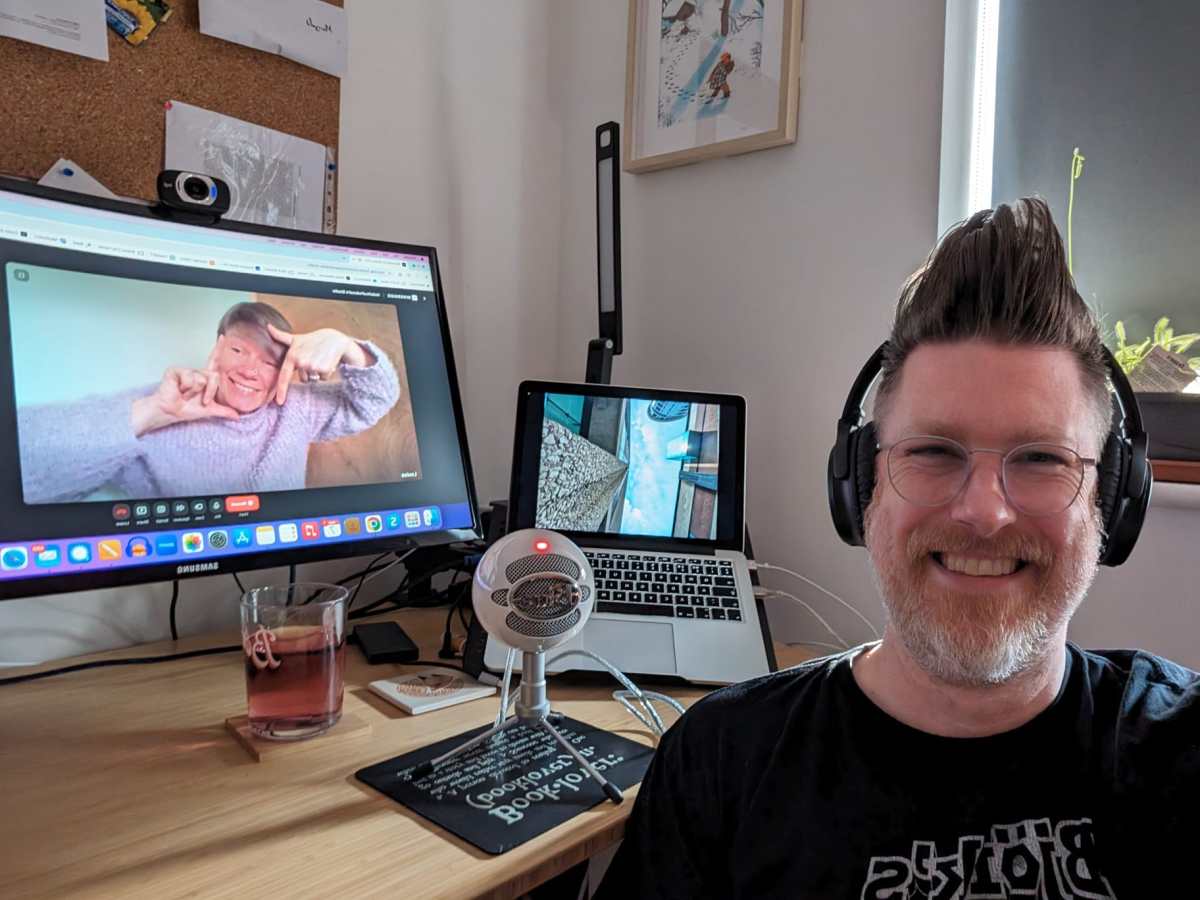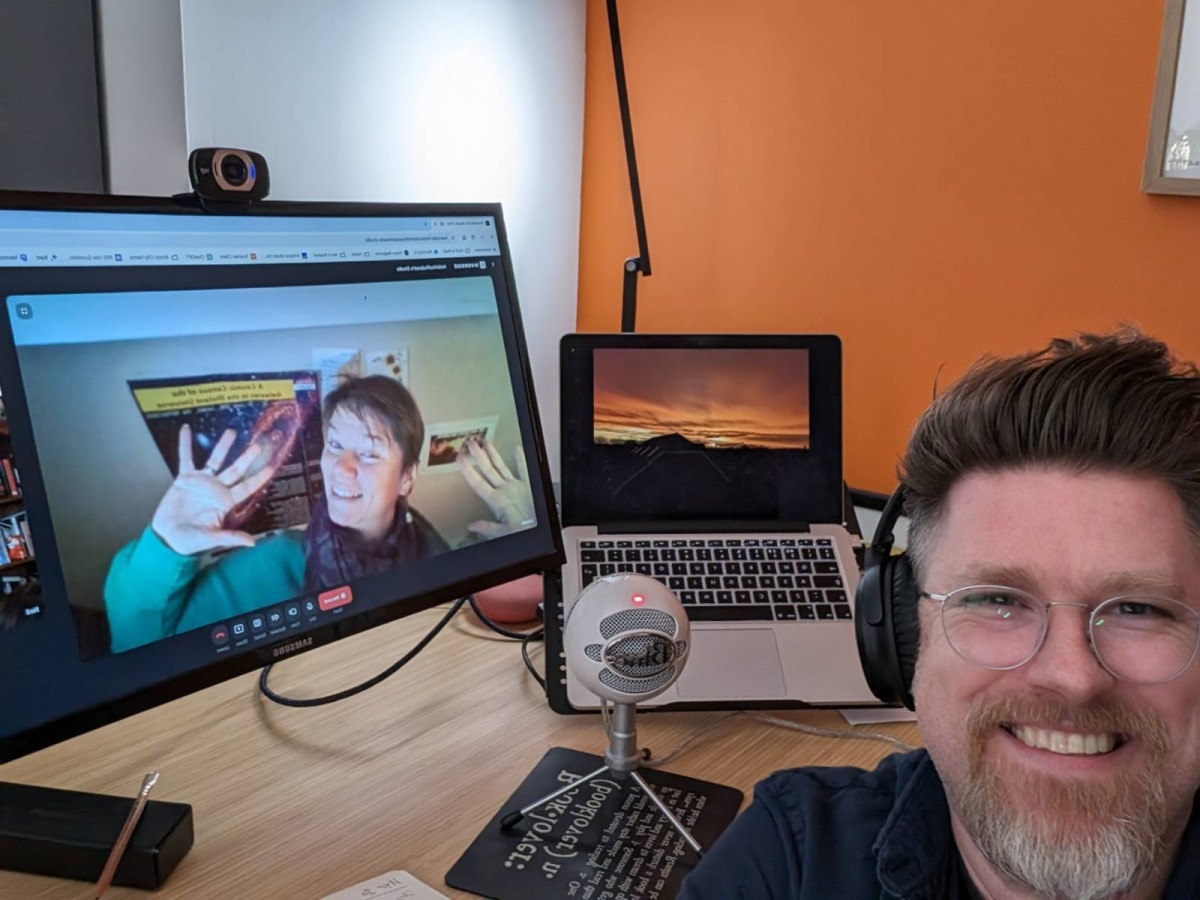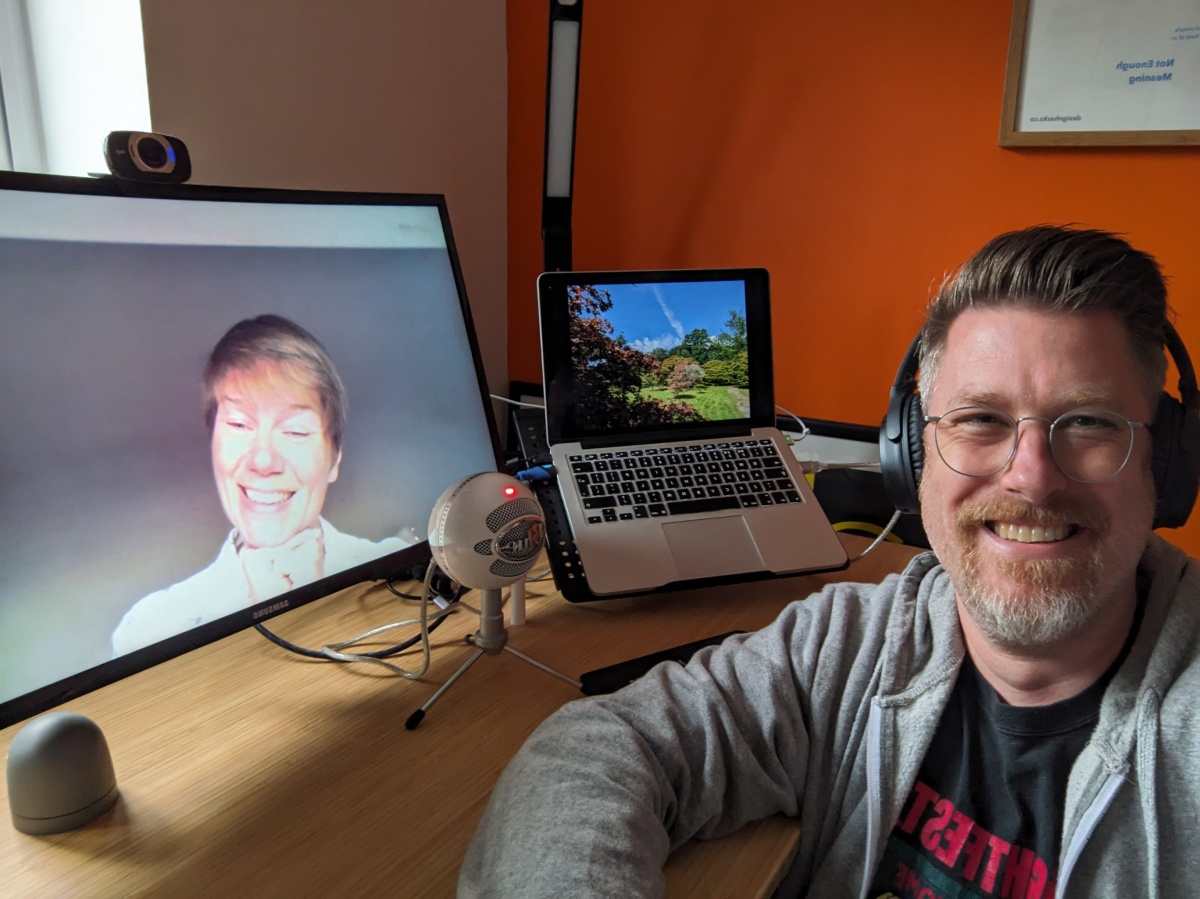Welcome in, pull up a chair and grab a warm beverage for episode 33 of Hello You Podcast! How have you been? – it feels like an age since we last waved you in and we have things to share …
First up – Louise’s impending move to Portugal and the melting pot of emotions, adventure and logistics of it, including a surprise tandem.
Neil, on the other hand, has been Story Slamming in Bristol and we chat about what it’s like to own our stories in new ways. Neil talks about sharing his story of working on the Shoreham Airshow disaster in 2015. (Trigger warning: in the podcast, we don’t talk about the details of what happened. However some people lost their lives that day. If you’d like to find out more, this Wikipedia entry is a useful resource and here is the book of condolences.)
We get interested in the process of creating a dialogue with the audience when telling our stories, listening, speaking and staying alive to the audience’s experience. And we follow a thread of how we grow (as people) as we own our stories. Neil points to this video Louise created recently, the first of a kind for her and we chat about the process of aliving our way into new stories & owning our power, with a lovely dollop of encouragement and appreciation from each of us to the other. That’s friendship, folks, being delighted to witness newness in someone you know well. That and appreciating Neil’s hair being on fleek (is that still a thing people say?!? let us know …)
[As an aside, while trying to find out how much ‘on fleek’ is still used, we found this article on it’s first use by Kayla Lewis, adoption by the Black community and how this was then erased and the word culturally appropriated by big brands. We’d like to share that side of the story here]
Is delighting in another’s growth and development a form of love? Louise drops the definition of Love shared by belle hooks in ‘All About Love‘. Neil asks if we talk enough about love in work & business? For Louise it’s a resounding yes and she refers to Helena Clayton’s work on love in leadership and Helena’s free online workshops ‘Acts of Love in Tough Times‘.
Talk turns to We Are Warriors, an art installation Neil experienced in Bristol’s Redcliffe Caves. It uses light and sounds (the voices of 130 Bristolian women were recorded) to hold space for all those who have ever been silenced. There’s an ironic twist in this tale, which we’ll save for the recording itself, nonetheless the installation is deeply evocative. This leads us to the power of quiet, listening and holding space.
To finish, we dive into another podcast tangent on why our minds just aren’t ready for AI. We do love ABC podcast All In The Mind and this episode opens our minds to the challenges we’ve got when we give AI similar motivations to ourselves. We’ll get into the detail in the next episode.
Listen to HYP33 here and please drop us a note on this blog, on Spotify or on LinkedIn to let us know what landed & resonated with you.





![Episode 18: [To Pigeon] Are you in the Holly tree? Random animals abound …](https://helloyoupodcast.wordpress.com/wp-content/uploads/2022/07/hyp18_selfie.jpeg?w=1200)


